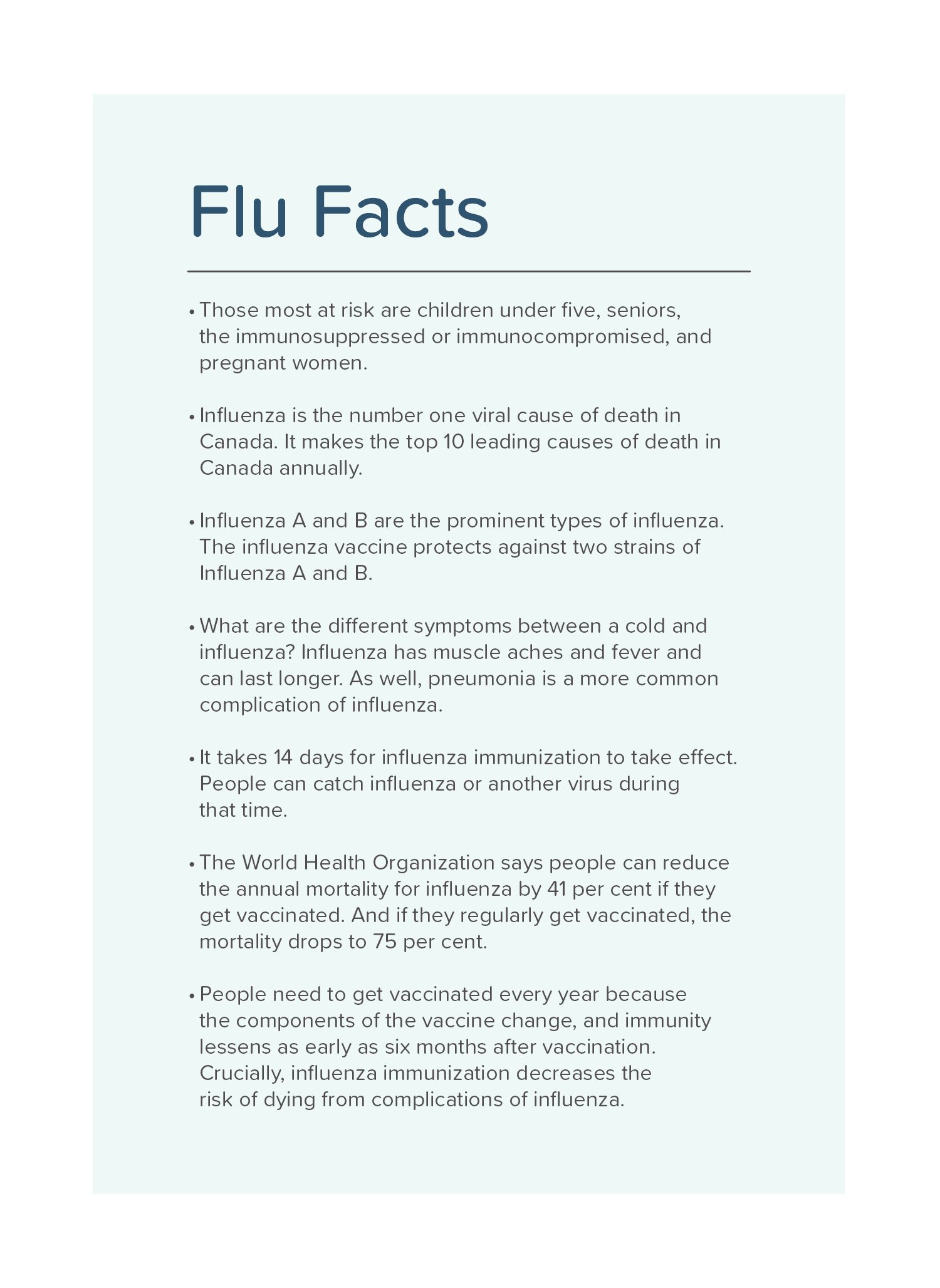Get the flu shot
There are many reasons to get influenza immunization

October 1, 2018
By Lisa Brunelle, Communications advisor, Covenant Health
Influenza season is almost here.
The best defence is immunization. For many, motivation to get a flu shot isn't just about protecting themselves; it's also about protecting others.
“Influenza doesn’t know any boundaries,” says Dr. Curtiss Boyington, Infectious Disease Specialist. “It doesn’t care if you’re healthy or not. People get sick to varying degrees, and every year even very healthy people can get deathly ill from its complications.”
That’s why it’s important to not visit people in the hospital or continuing care centres if you’re sick, even with a cough, sniffles or fever, he says.
We share three people’s reasons to get the flu shot.

Chan Woo - an elite athlete
Chan is a marathoner whose personal best time for the 42-kilometre distance is two hours, 25 minutes and seven seconds. This accomplished athlete has also tried out for the Summer Olympics.
Most weeks he spends 10 to 15 hours working out or running about 160 kilometres.
By day, the married father of two is manager of hospitality services at Killam Health Centre, Our Lady of the Rosary Hospital in Castor and St. Mary’s Health Care Centre in Trochu.
“My family is very important to me. I get the flu shot, first to protect my family, friends, co-workers and myself,” says Chan.
Being sick would mean Chan wouldn’t hit his training targets, and he wouldn’t be able to spend time with his children.
“We all need to take care of ourselves so we can take care of others,” he says.
Chan says even with the flu shot, he still needs to take care of himself by eating well, getting enough rest and being active throughout the winter.
Carol Silvera - lives with a chronic illness
Carol considers herself a healthy person in spite of living with a chronic illness for the last five years. No one can see her illness by looking at her; it’s a silent illness.
The educator in geriatric mental health at Villa Caritas has been with Covenant Health for 32 years.
“I have a compromised immune system because of my medication,” says Carol. “Part of ensuring I stay healthy is getting in the door immediately when the first flu shot is available, because I know it’s something I can do to protect myself.”
When her chronic illness is acting up and her inflammatory system kicks in, it feels like she has the flu.
That’s why she’s so careful to try to avoid contracting the actual flu.
“I’ve managed to get through 32 years of nursing and haven’t taken the flu home,” Carol says. “We need to put on our suits of armour—appropriate personal protective equipment. If someone has influenza, wash your hands, wash your hands, wash your hands and stay home if you’re feeling ill.”
Hector Marois - a long-term volunteer
Hector has been a volunteer at the Edmonton General for 32 years. He started volunteering when his wife’s aunt was a resident.
“I get my influenza immunization every year. I think it’s very important, especially since I come here,” says Hector. “The people I deal with are on the palliative unit. They have enough trouble already, so I’m very careful so I don’t bring germs in to them.”
Last year Hector was slower than usual to get his influenza immunization, and both he and his wife came down with the illness. They were so sick that their daughters had to take turns caring for them.
“This year I’m getting my flu shot as soon as it’s available,” says Hector.
Flu Facts
-
Those most at risk are children under five, seniors, the immunosuppressed or immunocompromised, and pregnant women.
-
Influenza is the number one viral cause of death in Canada. It makes the top 10 leading causes of death in Canada annually.
-
Influenza A and B are the prominent types of influenza. The influenza vaccine protects against two strains of Influenza A and B.
-
What are the different symptoms between a cold and influenza? Influenza has muscle aches and fever and can last longer. As well, pneumonia is a more common complication of influenza.
-
It takes 14 days for influenza immunization to take effect. People can catch influenza or another virus during that time.
-
The World Health Organization says people can reduce the annual mortality for influenza by 41 per cent if they get vaccinated. And if they regularly get vaccinated, the mortality drops to 75 per cent.
-
People need to get vaccinated every year because the components of the vaccine change, and immunity lessens as early as six months after vaccination. Crucially, influenza immunization decreases the risk of dying from complications of influenza.
For more information about how to prevent the flu and symptoms, read Top five things you can do to prevent the flu.